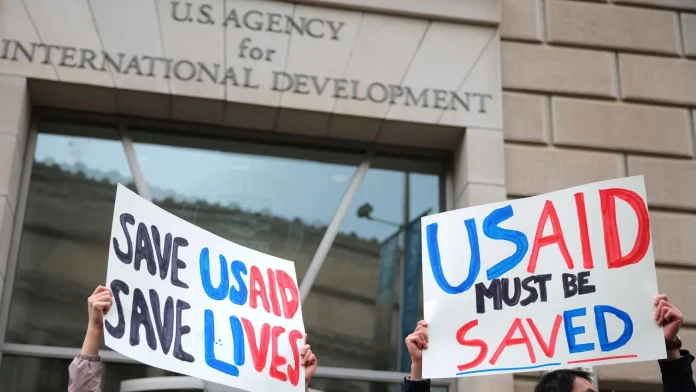The United States Agency for International Development (USAID) has announced it will place all of its global staff on administrative leave and recall employees from overseas assignments.
In a statement, the agency confirmed that the leave will begin shortly before midnight on February 7, 2025. However, exceptions will be made for personnel involved in critical functions, core leadership, and specially designated programs.
This decision is part of former President Donald Trump’s aggressive initiative to reduce the size of the U.S. government, a move that has received strong backing from his billionaire ally, Elon Musk. The plan has sparked significant criticism from Democrats and human rights advocates.
USAID plays a crucial role in U.S. foreign policy, funding health and emergency programs in over 120 countries, often targeting some of the world’s poorest regions. The agency’s activities are viewed as vital to the U.S.’s soft power strategy, especially in countering the influence of rivals like China, where Musk holds significant business interests.
Musk, a vocal critic of the agency, has referred to USAID as “a viper’s nest of radical-left Marxists who hate America” and has pledged to dismantle it. He has also made unfounded claims about the agency’s involvement in “rogue CIA work” and funding bioweapon research, including the COVID-19 pandemic, which he alleges “killed millions.”
The CEO of Tesla and SpaceX, who holds lucrative government contracts and was a key financial supporter of Trump’s campaign, claimed to have personally cleared the move with the former president.
This action aligns with conservative and libertarian viewpoints within the Republican Party, who argue that U.S. resources are wasted on foreign aid while domestic issues are ignored.
USAID’s mission focuses on ending extreme poverty, promoting democratic societies, and advancing U.S. security and prosperity. In 2023, the agency’s largest recipients included Ukraine, Ethiopia, and Jordan, with Ukraine receiving over $16 billion in support amid its ongoing conflict.
With an annual budget exceeding $40 billion, USAID accounts for a small portion of the U.S. government’s nearly $7 trillion annual spending. Despite this, the U.S. remains the world’s largest provider of official development assistance, according to the Organization for Economic Cooperation and Development (OECD).
This shift in U.S. foreign policy marks a significant change, raising concerns about the potential impact on global development and humanitarian efforts.







